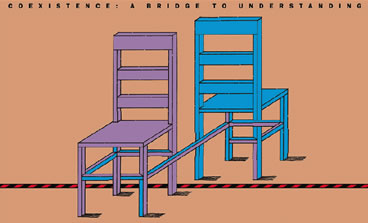
Lanny Sommese, USA
If democracy is a just form of government, it is so because it means freedom, and freedom means tolerance. If a democracy ceases to be tolerant, it ceases to be a democracy. But can a democracy be tolerant in its defense against antidemocratic tendencies? It can - to the extent that it must not suppress the peaceful expression of antidemocratic ideas. It is just by such tolerance that democracy distinguishes itself from autocracy. We have a right to reject autocracy and to be proud of our democratic form of government only as long as we maintain this difference. Democracy cannot defend itself by giving itself up. But to suppress and prevent any attempt to overthrow the government by force is the right of any government and has nothing to do with the principles of democracy in general and tolerance in particular. Sometimes it may be difficult to draw a clear boundary line between the mere expression of ideas and the preparation of the use of force; but on the possibility of finding such a boundary line depends the possibility of maintaining democracy. It may be that any such boundary line involves a certain risk. But it is the essence and the honor of democracy to run such risk, and if democracy could not stand such risk, it would not be worthy of being defended.
Hans Kelsen
The Artists
Yoko Ono
Takaaki Fujimoto
Yasuyuki Uno
Philippe Apeloig
Yossi Lemel
Long Gang
Sharon Etgar
Jaroslav Sura
Raphie Etgar
Nammala Galada
Lejla Bulja
Jose Rementeria
Fabienne Feltus
Andre de Castro & Sergio Liuzzi
Cedomir Kostovic
Shigeo Fukuda
Joram Rozov
Armando Tejuca
Andrzej Pagowski
Lanny Sommese
Piotr Mlodozeniec
Istvan Orosz
Seymour Chwast
Asim Abu-Shakra
Lex Drawinski
Lex Drawinski (2)
Yarom Vardimon
Dennis Paul
Mervyn Kurlansky
Shigeo Fukuda (2)
Pippo Lionni
Lanny Sommese (2)
Marten Jongema
Letita Bouwer
Beeke Anthon
Folon
Leonard Konopelski
Bojidar Ikonomov
Halmut Brade
Jiri Svetlic
LeeAnn Falciani
Jacqueline Bishop
Raphie Etgar (2)
Mark Cross
Geoff Budd
Seymour Chwast (2)
Milton Glaser
Fatima Miranda
